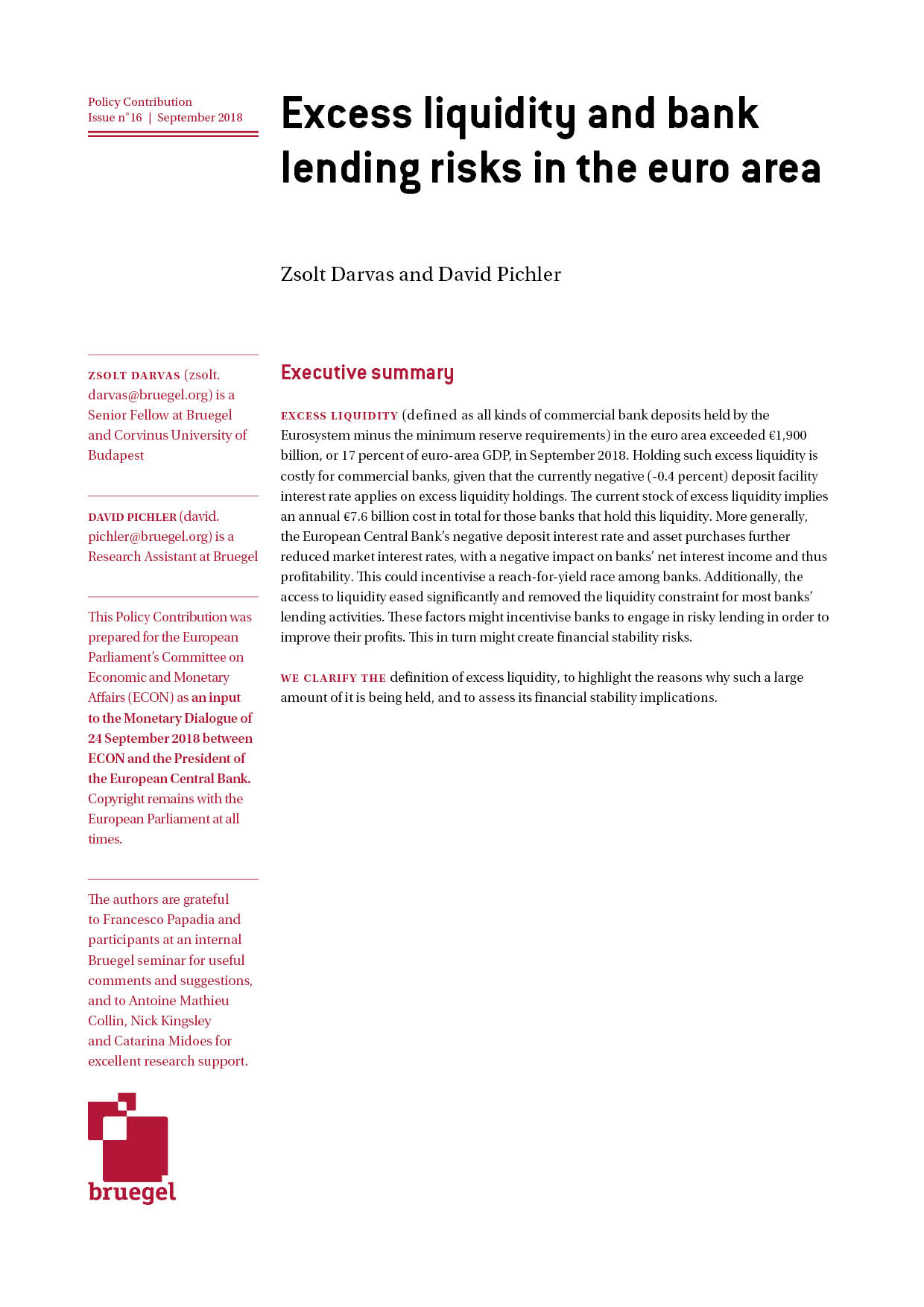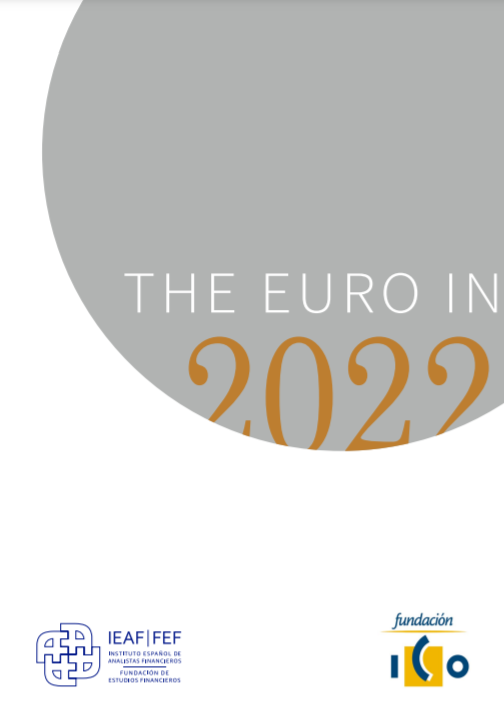Policy Contribution
Excess liquidity and bank lending risks in the euro area
In this Policy Contribution prepared for the European Parliament’s Committee on Economic and Monetary Affairs (ECON) as an input to the Monetary Dialogue, the authors clarify what excess liquidity is and argue that it is not a good indicator of whether banks’ have more incentives in risk-taking and look at indicators that might signal that bank lending in the euro area creates undue risks.
This Policy Contribution was prepared for the European Parliament’s Committee on Economic and Monetary Affairs (ECON) as an input to the Monetary Dialogue of 24 September 2018 between ECON and the President of the European Central Bank. Copyright remains with the European Parliament at all times.
Excess liquidity (defined as all kinds of commercial bank deposits held by the Eurosystem minus the minimum reserve requirements) in the euro area exceeded €1,900 billion, or 17 percent of euro-area GDP, in September 2018. Holding such excess liquidity is costly for commercial banks, given that the currently negative (-0.4 percent) deposit facility interest rate applies on excess liquidity holdings. The current stock of excess liquidity implies an annual €7.6 billion cost in total for those banks that hold this liquidity. More generally, the European Central Bank’s negative deposit interest rate and asset purchases further reduced market interest rates, with a negative impact on banks’ net interest income and thus profitability. This could incentivise a reach-for-yield race among banks. Additionally, the access to liquidity eased significantly and removed the liquidity constraint for most banks’ lending activities. These factors might incentivise banks to engage in risky lending in order to improve their profits. This in turn might create financial stability risks.
The authors clarify the definition of excess liquidity, to highlight the reasons why such a large amount of it is being held, and to assess its financial stability implications.











